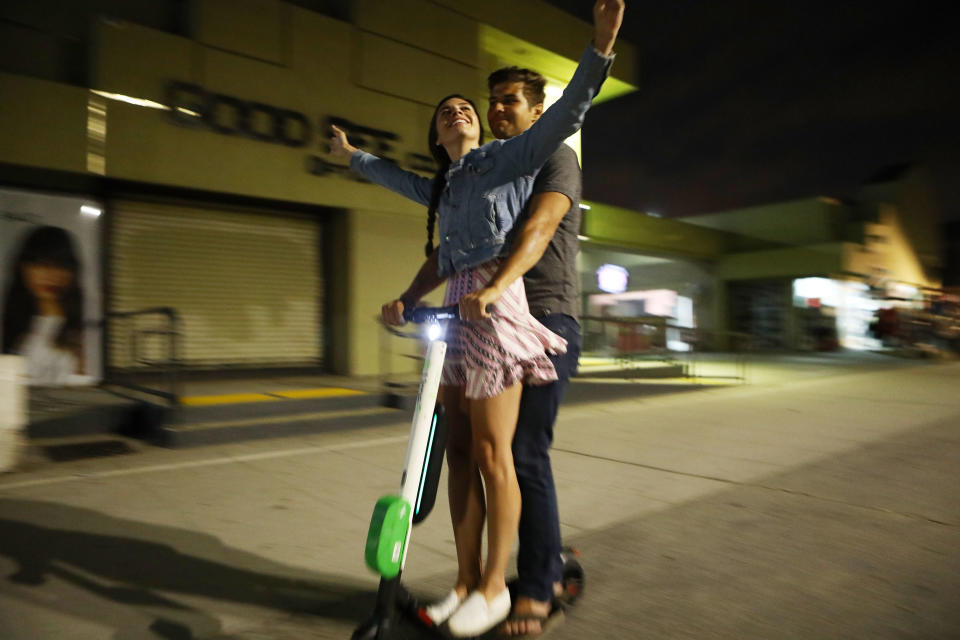Why Philadelphia halted plans to unleash e-scooters across the city

Philadelphia is latest major U.S. city to put the brakes on plans to unleash a deluge of e-scooters across its streets and sidewalks.
City planners working to roll out e-scooters managed by Bird and other companies ran into a snag when they discovered a Pennsylvania law that deems electronic scooters unfit for the road.
The news will relieve e-scooter critics who curse the mini motor vehicles as a public nuisance, yet disappoint would-be riders assuming the new mode of transportation was a foregone conclusion.
Aaron Ritz from Philadelphia’s Office of Transportation, Infrastructure and Sustainability said he and his colleagues had been moving forward with plans to bring e-scooters to the city under rules governing its shared bike program, already in place.
“We did a further legal review and turns out the Pennsylvania Code is clear,” Ritz said. “All vehicles need to be licensed unless they are exempt.”
Bikes, farm equipment, and even horse and buggies are exempt under Pennsylvania law, though electric scooters get different scrutiny.
A motorized scooter is a two-wheeled vehicle powered by an engine or an electric motor, which does not have a seat or saddle for the driver, a 2017 fact sheet from the PennDOT reads.
“Not all of the currently proposed scooters will actually meet the definition of ‘motor driven cycle,” Alexis Campbell, Community Relations Coordinator for Pennsylvania’s Department of Transportation, said.
“Nevertheless, many of the scooters that are being proposed for use have a motor and are self-propelled thus making them ‘motor vehicles’ under the Vehicle Code.”
‘Any changes to the vehicle code require legislation’
According to the fact sheet, scooter vehicles “do not comply with the equipment standards and inspection requirements for motor vehicles, and cannot be titled or registered within the commonwealth…and cannot be operated on Pennsylvania roadways or sidewalks.”
That means e-scooter companies and those looking to get around the City of Brotherly Love with the latest transportation craze will have to wait.
Breaking into the Philadelphia market, or any market in the state, means a change to the vehicle code.
“Any changes to the vehicle code require legislation,” Campbell said.
Philadelphia isn’t in a hurry.
“The city is not taking an active role in that,” Ritz said, adding that he’s mindful of the litmus tests happening in cities across the country.
“What we are very nervous about is what’s been seen elsewhere in major cities, overnight,” he said. “Scooter companies that had no consultation with the city.”
So far Ritz said providers in talks with the city have expressed a desire to roll out services in a legal manner.
“The nature of the scooter projects are that they are using the public way for commerce and there are vehicles left in the street,” he said. “It’s appropriate for the city to take a keen eye to maintain the public benefit.”
When asked what financial benefit, if any, Philadelphia would expect to gain from the adoption of e-scooter services, Ritz said e-scooter companies would be required to pay fees and the city would assess possible fines for infractions.
“We know the programs need oversight,” he said. “We will have strict provisions for data sharing and ask people to provide a list of references for operating and maintaining the fleets.”
Alexis Keenan is a New York-based reporter for Yahoo Finance. She previously produced live news for CNN and MSNBC and is a former litigation attorney.
Read more:
Why 9 people are suing the e-scooter industry
Winning the Mega Millions is sweeter in some states than others
Big Pharma might fight Trump’s proposed rule mandating drug prices in TV ads
